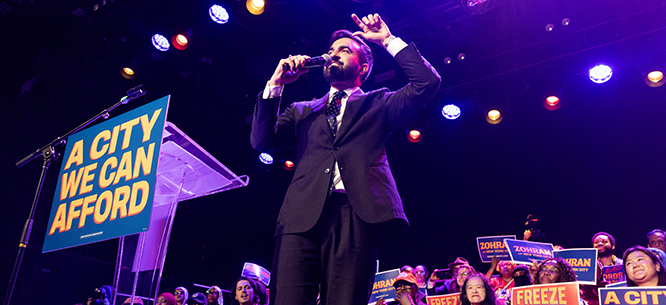What distinguishes Zohran Mamdani’s socialism is not its aims. It’s his willingness to take seriously the problem of how to get there.
Spring 2025

- Subscribe
- Magazine
- Online
- Blog
- Podcasts
- Events
- Store
- Logout
- About Us
- Donate
- Contact
- Advertise
- Newsletter
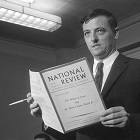
Know Your Enemy: A Complicated Man
Matt and Sam talk to Sam Tanenhaus about his long-awaited biography of William F. Buckley Jr.
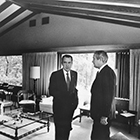
Can We Remake Finance?
We have witnessed the destructive effects of financialization. Can the millions held in bank deposits, corporate equities, and bonds be used instead to provide for society’s most pressing needs?

The Struggle Against Autocracy in Asia
An interview with Jeffrey Wasserstrom, author of The Milk Tea Alliance.

The Bad Science Behind Trans Medicine Bans
The conservative movement has built its case against gender-affirming care on the authority of anachronistic, faulty clinical research.

Why Did Immigrants Support Trump?
The political problem of the border arises from a broader crisis of state legitimacy.

Rage and Prayer in Los Angeles
The task of this moment is to build a broad front that can resist authoritarianism. The recent protests are early skirmishes in the fight that will be needed.

[EVENT | July 10] Labor’s Partisans
A discussion with Alex Press and E. Tammy Kim, moderated by Natasha Lewis.

The Value of Nature
Why have some gifts of nature remained free?

American Ideologies
To understand everything that happens in Latin America in relation to the United States is to brush aside inconvenient details in favor of a morality play.

The Cuban Exodus
So long as Cubans’ rage and despair remain, the government cannot afford to curtail emigration. And there is no end in sight.

[BAY AREA EVENT | June 26] Housing Politics and Climate Disaster
A discussion with Zach Lou and Moira Birss, moderated by Patrick Iber.
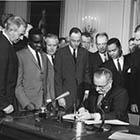
Know Your Enemy: Christopher Caldwell’s Case Against Civil Rights
Matt and Sam discuss Christopher Caldwell’s The Age of Entitlement: America Since the Sixties, a broadside against the 1964 Civil Rights Act.
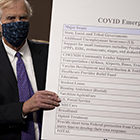
The Pandemic Welfare State
From 2020 to 2022, Americans saw the state mobilize immense resources to boost their standard of living—and then witnessed the hard political constraints hemming in this capacity.
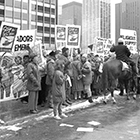
The Future of Sanctuary
Sanctuary activists face new challenges under Trump’s second term but their work has always entailed great personal risk.
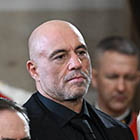
Know Your Enemy: Did Podcasters Make Trump President?
Matt and Sam talk to Andrew Marantz about “bro” podcasts and their role in Trump’s election victory.
